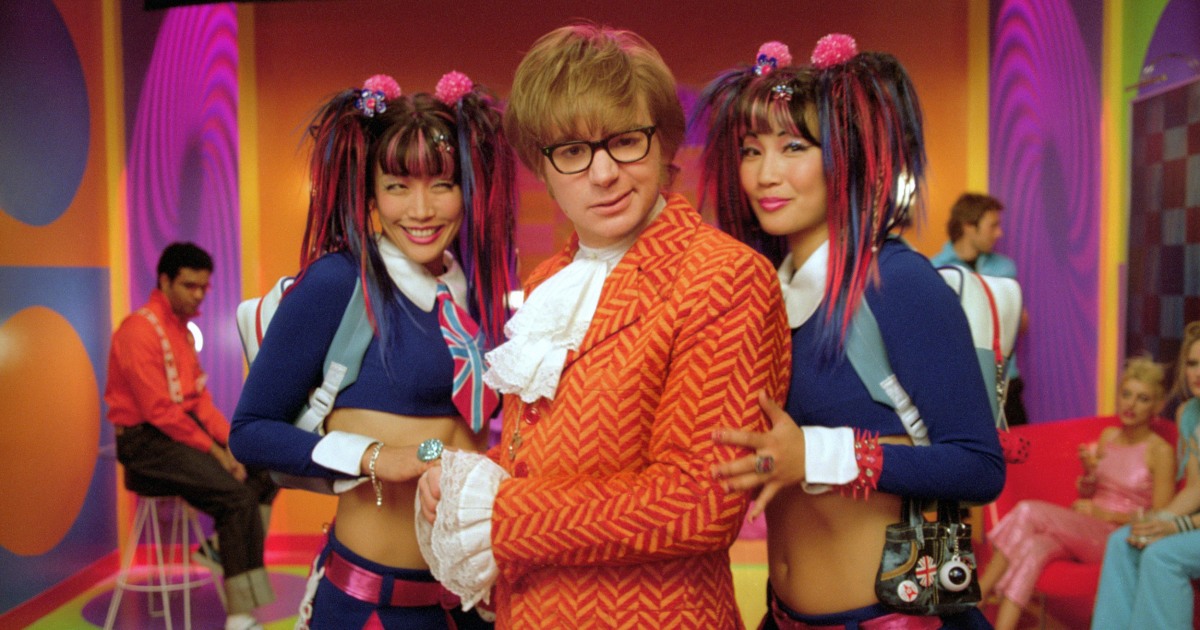
A new study of Asian Americans in the entertainment industry and how their characters are portrayed on screen revealed that audiences are asked to laugh at nearly half of Asian and Pacific Islander roles.
The study “I Am Not a Fetish or Model Minority” from the Geena Davis Institute on Gender in Media, the Coalition of Asian Pacifics in Entertainment and Gold House, reviewed the top 10 grossing films each year from 2010 to 2019. The analysis showed that while less than a quarter of the API characters were comedic themselves, audiences were asked to laugh at almost half of them.
It suggests that Asians on screen often serve as the punchline or the butt of the joke, the study says.
Long Duk Dong, an Asian foreign exchange student in the 1984 movie “Sixteen Candles,” is a character that experts say was an early watershed example of APIs being mocked on screen.
“Anything he said was something that you laughed at, not with,” sociologist Nancy Wang Yuen told NBC Asian America. “He kind of defined Asian characters for decades.”
The survey also gauged the opinions of 329 Asian Americans in the entertainment industry, revealing that over 93 percent agree that API representation on screen is inadequate, and 95 percent feel that representation behind the scenes is inadequate. Of the films studied, only 4.5 percent of main cast members were API. But even when in the main title cast, three-fourths of Asian characters are in supporting roles.
“That just speaks to the lack of authority that Asians have to be able to tell their own stories in Hollywood and the kind of trope of using Asian as objects,” Yuen said.
Thirty-five percent of the characters studied fall into tropes or stereotypes like the model minority, which portrays Asian Americans as inherently nerdy and hardworking, the martial artist, or the exotic woman. Results showed that 17 percent of female API characters are verbally objectified and 13 percent are dressed in hypersexual clothing, more than white or non-Asian counterparts. An overtly racist representation that comes to mind for Asian Americans who grew up in the early 2000s are the Japanese sisters Fook Mi and Fook Yu in "Austin Powers in Goldmember," who the title character was actively trying to have sex with.
Yuen said these depictions are longstanding and can seriously affect how Asian girls grow up viewing themselves.
“We have the intersection of racism and sexism for Asian women who aren’t just disempowered but also exploited,” she said. “It’s really hard for young Asian women to see themselves as leaders or as anything more than that especially when these images have an impact on the way they’re treated in society.”
The analysis found that stereotypes vary by racial group; South Asian men, for example, are depicted in science fields like medicine, and South Asian women are portrayed as exotic seductresses. East Asian women are often represented as “lotus blossoms,” innocent girls who are still sexually available, or “dragon ladies,” women who are evil and use their femininity to deceive men. Of the groups included under the AAPI umbrella, the study says that Pacific Islanders and Southeast Asians are rarely on screen compared to South and East Asians.
“Hollywood is something that repeats what has worked before,” Yuen said. “The early representation of Asians were just East Asians, and the stereotypes were the accent, the exotic, the villain. All those tropes have not changed for 100 years. So that’s why we have overrepresentation of the stereotype as well as the overrepresentation of East Asians [compared to other AAPIs], because Hollywood just reproduces itself.”
With more creators of color behind the scenes, Yuen sees the landscape slowly but surely improving. She cites Mindy Kaling’s Netflix show, “Never Have I Ever,” which has an Indian main character, Devi, as one of the chief examples.
“You have her and her mother and her cousin, who’s a young adult, and her grandmother, who’s an immigrant and is sassy and just really fun,” Yuen said. “And all of them get to tell their own jokes.”
"asian" - Google News
August 06, 2021 at 03:24AM
https://ift.tt/3rXwDkt
Almost half of all Asian roles serve as a punchline, study finds - NBC News
"asian" - Google News
https://ift.tt/2STmru2
Shoes Man Tutorial
Pos News Update
Meme Update
Korean Entertainment News
Japan News Update

No comments:
Post a Comment